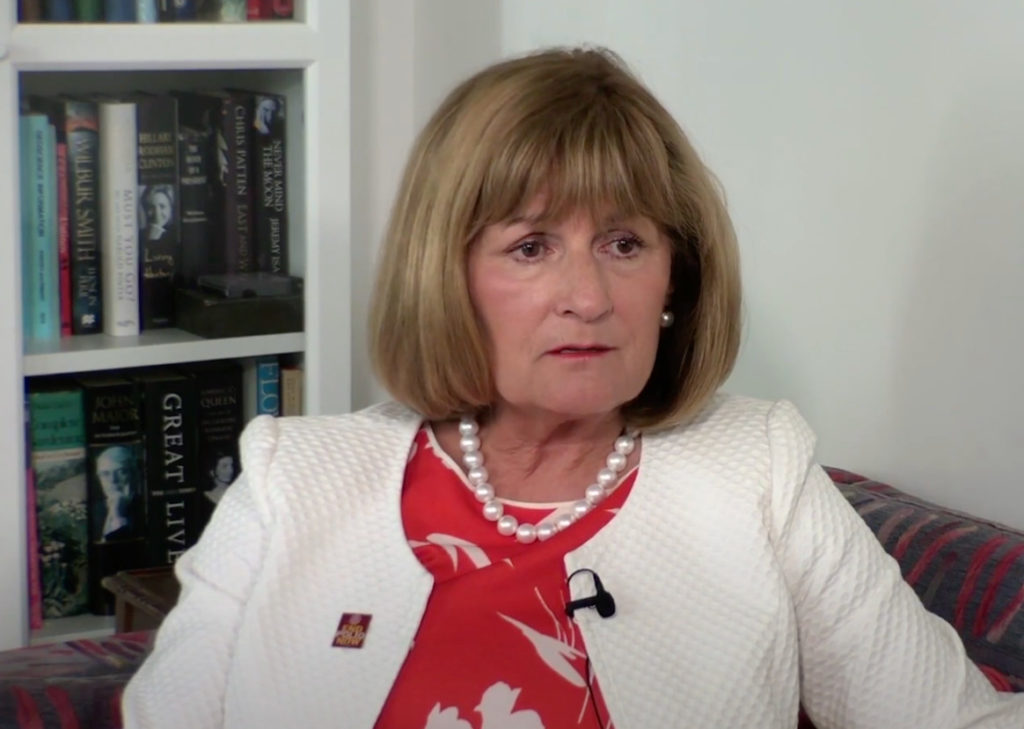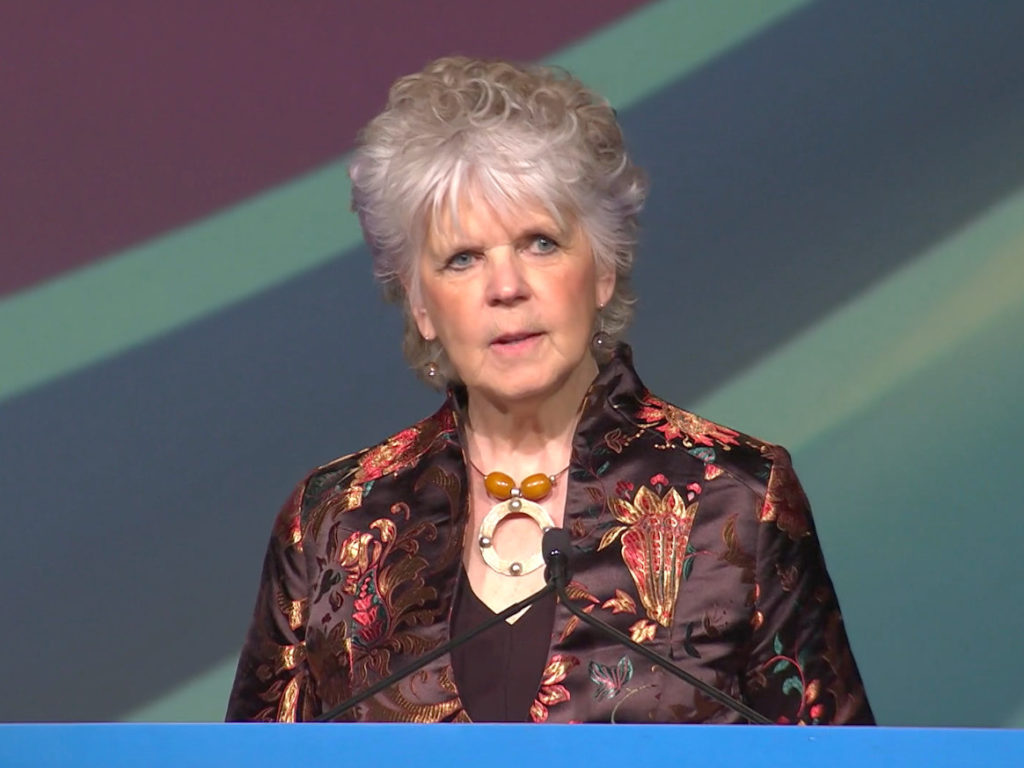In every corner of the world, women leaders in Rotary are leading the charge to make polio history. They are fundraisers, volunteers, polio survivors and advocates from all backgrounds and walks of life with one thing in common: working to ensure that no child ever has to suffer the devastating and paralyzing effects of polio. Meet five women in Rotary whose work is leading the way in the fight to end this disease.
Judith Diment
Diment, of the Rotary Club of Maidenhead Thames, England, leads Rotary’s UK advocacy efforts, and is a passionate fundraiser and International PolioPlus Committee member.
She recently spearheaded Rotary’s efforts to create polio eradication champions among UK political leaders, resulting in the country committing up to an additional $US514.8 million to the Global Polio Eradication Initiative (GPEI) to fund the 2019-2023 Endgame Strategy.
In 2019, former UK Prime Minister Theresa May and Queen Elizabeth II both publicly recognized Diment for her philanthropy to polio eradication and other causes. Hear more from Diment.
Ijeoma Pearl Okoro
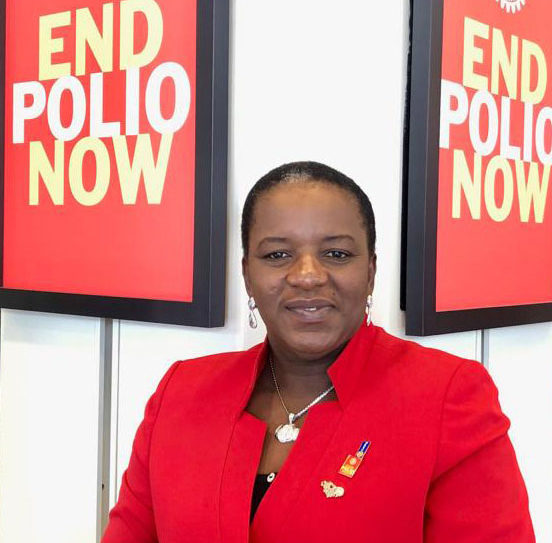
“Until the last child is reached and immunized, no child in the world is free. Let us all support the cause to end polio now.”
Ijeoma Pearl Okoro is a member of the Rotary Club of Port Harcourt, Nigeria where she directs End Polio Now activities throughout sub-Saharan Africa. She leads efforts to build awareness around the fight to eliminate polio from Nigeria and engages other Rotary members and the public through events and promotional endeavors.
Through a range of activities like government advocacy, celebrity engagement and fundraising, Okoro’s leadership helps ensure that polio eradication is a priority and every child is protected from the disease.
In 2019, Nigeria surpassed three years without a case of the wild poliovirus, and the African Region is expected to be certified as wild polio-free in late August 2020.
Tayyaba Gul
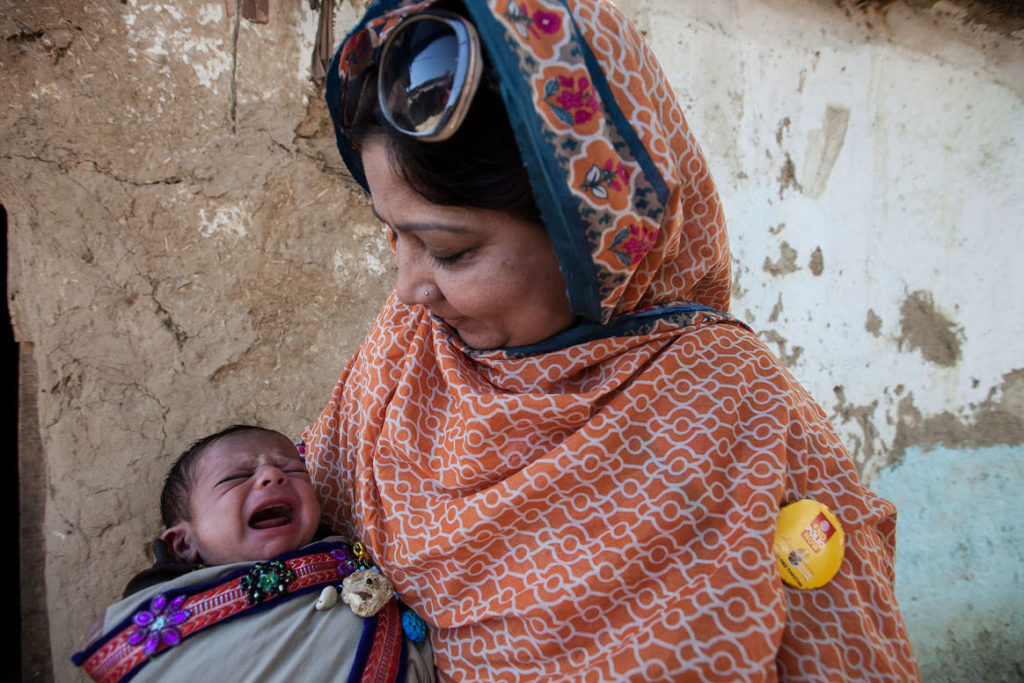 A member of the Rotary Club of Islamabad (Metropolitan), Pakistan, Gul runs a Rotary-funded health center in Nowshera, working with teams of female vaccinators help reach neighborhoods of ethnic Afghan refugees displaced by conflict in tribal border regions. Gul’s teams use cellphones for daily data reporting on immunization progress, which helps health teams analyze data and report back in real time.
A member of the Rotary Club of Islamabad (Metropolitan), Pakistan, Gul runs a Rotary-funded health center in Nowshera, working with teams of female vaccinators help reach neighborhoods of ethnic Afghan refugees displaced by conflict in tribal border regions. Gul’s teams use cellphones for daily data reporting on immunization progress, which helps health teams analyze data and report back in real time.
As one of only two countries that continues to report cases of the wild poliovirus, fighting polio in Pakistan is key in achieving a polio-free world. “I just contribute my part as a Rotarian. I’m happy to work in remote areas, especially with women, motivating them to play their role in society,” Gul says. Watch to learn more about Gul’s work in Pakistan.
Ann Lee Hussey
Ann Lee Hussey has led Rotary volunteers on nearly 30 trips to places like Pakistan and Nigeria to immunize children against polio, the disease that has affected her since she was 17 months old.
A member of the Portland Sunrise Rotary Club, Maine, USA, she is an outspoken advocate for polio eradication and immunization and has testified at state legislative hearings in Maine on the importance of vaccination.
In January 2019, Hussey spoke of her experience as a polio survivor and her Rotary service at Rotary’s International Assembly, highlighting the role of frontline polio workers: “Without question, the many health workers around the world—most of whom are women—are the unsung heroes on the polio front. Without them, we would not be where we are today.”
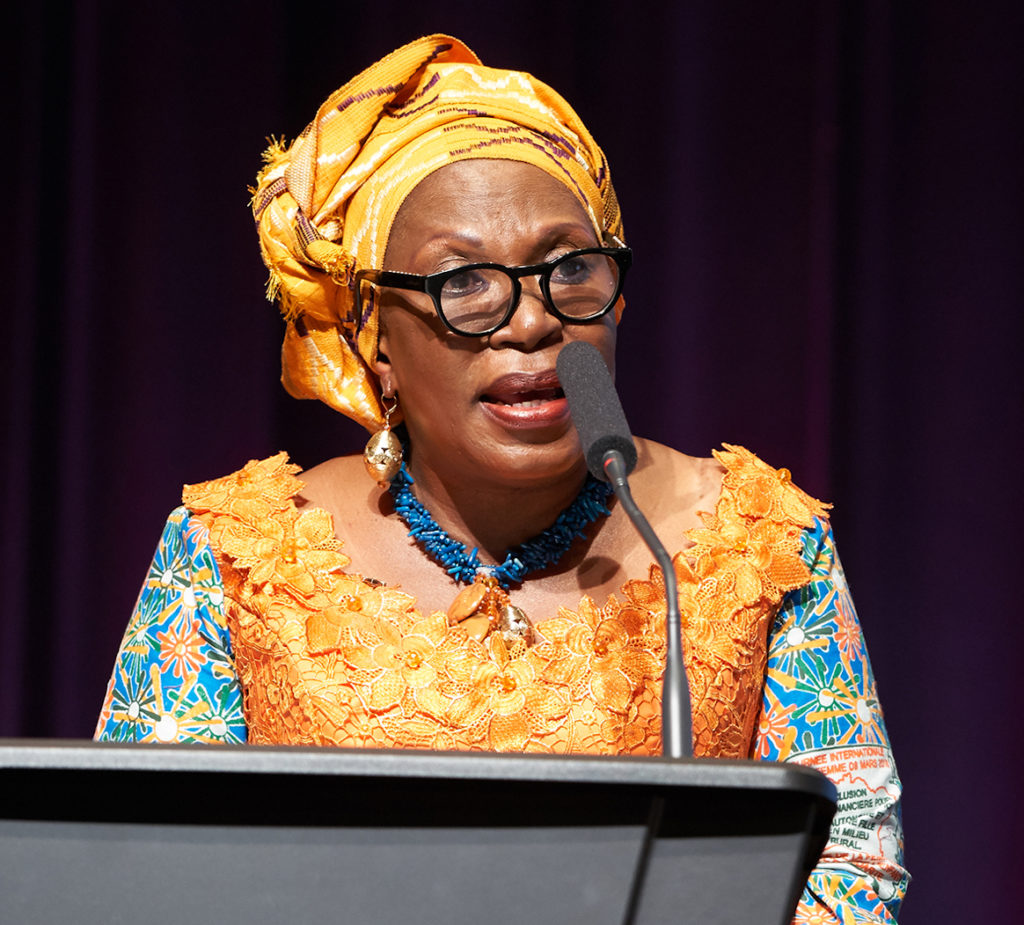
Marie-Irène Richmond-Ahoua
Richmond-Ahoua joined the Rotary Club of Abidjan-Biétry, Côte d’Ivoire, in 1991, making her one of the first female Rotarians in Africa.
When a general canceled a national immunization day during a 1999 coup in her country, Richmond-Ahoua appealed directly to the general’s family, pleading that innocent children had nothing to do with the war. Shortly afterward, the general granted her request and presided over the opening of the rescheduled immunization day.
Richmond-Ahoua coordinates national polio immunizations and serves on the Africa Regional PolioPlus Committee. She also spoke at Rotary’s 2018 World Bank International Women’s Day event.
